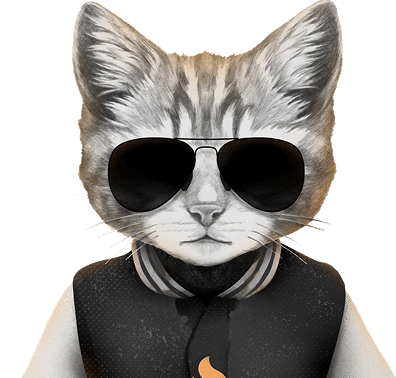
This article is meant to be a full recap of how AI is changing influencer marketing across tools, strategies, relationships, and everything in between. We gathered all the key shifts in one place, so marketers don’t have to piece things together themselves. Our goal is to offer a clear, all-in-one guide for anyone trying to keep up with how fast things move. We hope this helps brands stay aware, adapt wisely, and not miss the bigger picture of AI’s growing influence in this space.
AI is impacting influencer marketing by providing room for AI and CGI influencers, revolutionizing influencer discovery, and facilitating scaling and optimizing campaigns through advanced analytics and content creation. In this article, we delve into this transformative technology and discuss how it can aid brands and marketers in their influencer marketing efforts and what concerns they should keep in mind when applying it.
Key takeaways:
AI and virtual influencers are gaining traction, offering control and consistency but raising questions around authenticity.
Finding the right creators is easier, thanks to AI-powered vetting and audience analysis.
Content workflows move faster with tools that help generate briefs, captions, and post ideas.
Performance reporting is sharper, linking campaign data directly to business outcomes.
Emerging trends are easier to catch when machine learning tracks shifts in audience behavior.
Managing influencer relationships gets easier with tools that log communication and suggest follow-ups.
Trust depends on transparency, especially when using AI to generate content or guide decisions.
The Rise of AI Influencers and Virtual Influencers
With the advent of artificial intelligence new types of influencers emerged. Some people may assume AI and virtual influencers are the same and even use the two concepts interchangeably. However, they shouldn’t be mixed up, and here’s why.
An AI influencer is generated by artificial intelligence and machine learning algorithms manage its behaviors and responses. This means an AI influencer can interact with followers and create content without or with minimal human intervention.
Virtual influencers are characters created by computers. Graphic artists, agencies, or brands design their looks and traits. Virtual influencers publish content on social media like any other influencer, however, their posting is heavily affected and monitored by their creators.
What do virtual influencers and AI influencers have in common?
They never get tired and are available 24/7. Numerous brands have worked with virtual influencers in the past because they are less likely to be involved in a scandal - as opposed to human influencers - and their content and appearance can be shaped to external requirements such as catering to diverse audience demographics or aligning brand values.
Some of the major benefits of working with an AI influencer or virtual creator:
They can keep a consistent posting schedule.
They are reliable.
Physical and creative boundaries don’t limit them.
Their backgrounds and looks are customizable making them much easier to connect with varied audiences.
What AI is used in creating them?
Generative artificial intelligence: GenAI creates different types of content such as texts, images, and videos in response to prompts. They use generative models and create new content based on the data they were trained on.
Natural Language Processing: NLP is a subset of AI. It enables machines to understand and manipulate human language. NLP makes it possible to study user sentiments, patterns, and topics which then is used by digital influencers to create content that resonates with the target audience.
AI-Powered Influencer Discovery and Analysis
Identifying the right influencer for a marketing campaign is like finding a needle in a haystack. Luckily, influencer discovery and analysis are two areas where artificial intelligence can be of help. Sophisticated AI tools enable brands and marketers to analyze a vast amount of data and pick creators that align with their goals, missions, values, and target audience.
Ensuring audience alignment
Advanced AI tools can filter through millions of influencer profiles to understand their followers’ age, gender, location, hobbies, and interests. They can detect patterns in audience behavior that tell brands whether the content appeals to them or not. Tools discover influencers with audiences who may be potentially interested in a company’s products or services. AI can recommend similar influencers to those the brand already works with based on multiple parameters.
Fraud detection
Although it has been on the decline, influencer fraud is still a headache for brands. Algorithms analyze social media profiles and reveal bot accounts and suspicious users. AI tools evaluate follower growth and engagement dynamics and flag those that have unusual spikes. NLP assesses the nature and quality of comments and exposes automated or out-of-context responses.
Content fit and brand safety
Artificial intelligence - more precisely Natural Language Processing - analyzes creators' past content to gather information about the topics they mostly discuss, style, and tone. It identifies potentially harmful and controversial content to safeguard brand safety. NLP can also evaluate the relevancy of comments and audience sentiments.
Visual content analysis
An advanced AI tool is able to study an influencer’s visual style thus enabling brands to spot individuals whose aesthetics match theirs. It can categorize influencers based on the backgrounds, settings, and products displayed in their photos and videos. The latter capability comes in handy to find out how many times an influencer advertises other products including a company's competitors.
Content Creation and Optimization with AI
One of the most challenging aspects of marketing today is creating customized, high-quality content. Fortunately, there are plenty of AI tools that aid marketers in content creation, hashtag, and caption generation, and suggest the ideal time for posting.
Generating content ideas
Artificial intelligence can identify emerging trends and content gaps. Posting on popular topics in a niche or tapping into underrepresented themes helps influencers and businesses stay ahead of the curve. Tools may spot preferred topics and formats by examining followers’ reactions and interactions with social media posts. Furthermore, AI is able to cross-examine several platforms and recommend ideas that can be adapted for other channels. All in all, AI technology is a great asset for social media influencers and brands for providing inspiration and suggesting relevant topics.
Posting time optimization
Timing is everything and if you don’t adjust to the hours your target audience is the most active on social media platforms, they won’t notice your content. Artificial intelligence determines what is the best time for sharing brand or influencer content based on engagement metrics. The tool can provide you with suggestions regarding the best posting times for different platforms.
Content personalization
With an AI tool, you can segment your audience by age, gender, interests, and platform preference and create content that resonates with various demographics. AI-powered marketing tools can generate multiple versions of a text, image, and video enabling brands and marketing professionals to tailor their posts to diverse audiences. Artificial intelligence can help you not only translate but also localize your content with idioms and cultural references.
Hashtag and caption creation
Hashtag generators analyze millions of social media posts and identify popular, generic, trending, and niche-specific tags that you can use in your content. Some tools provide even more data such as the number of times a hashtag was used in a specific period, whether it is gaining or losing popularity, and so on. With smart prompting, brands can create captions in versatile styles so that the voice of the message aligns with their brand’s voice. AI analyzes images and comes up with caption ideas that match the photo’s or video’s style.
Advanced Analytics and ROI Measurement
One of the biggest challenges of influencer marketing is measuring influencer campaign results, especially ROI. Engagement metrics, views, and reach provide some insights but are too superficial to rely completely on them. On top of this, most campaigns are multi-channel, so tracking campaign outcomes is even more difficult. Measuring influencer marketing efficiency and ROI are other areas where AI brought positive changes.
Real-time data monitoring
AI systems showcase data gathered from multiple platforms in a single dashboard. They regularly update major KPIs and calculate and compare engagement across various content types and social media channels. They provide a holistic view of the campaign performance along with offering insights on best-performing content types.
Audience sentiment analysis
Using NLP, tools can categorize users’ comments as neutral, positive, and negative. They can detect changes in audience sentiments thus allowing brands to further investigate and avoid PR issues. They help businesses understand how their products and messages are perceived on various channels.
Tracking conversions
Attribution models make it easier to track and attribute conversion to particular influencers. Businesses can use AI to create, refine, and test custom attribution models tailored to their customers’ journeys. AI models can help marketers track user interactions and map out buyer journeys on different channels. With advanced technology, companies can estimate the long-term impact of their campaigns on sales, customer lifetime value, and brand awareness.
AI-Assisted Trend Forecasting
Staying ahead of trends is crucial for remaining competitive and engaging your customers. Artificial intelligence offers marketers and brands trend insights to create timely and relevant content.
Advanced data analysis
AI assesses millions of posts and videos and the interactions they receive in real time over multiple social media platforms. It provides an extensive overview of the social media landscape. During its analysis, it can detect recurring topics and newly emerging ones in online discussions. Computer vision AI identifies new visual trends in images and videos, like favored filters, color schemes, typography types, and so on.
Trend trajectory prediction
Not all memes and trends become viral. AI, however, can forecast what trend will gain traction by analyzing historical data on how audiences and influencers in your niche react to them. AI can check what demographics are engaging with the trend and how popular the influencers are who promote it.
AI and Influencer Relationship Management
Influencer marketing can’t work without fostering good relationships between businesses and influencers. Campaigns have become complex, stretch on several platforms, and involve dozens of influencers. Managing and coordinating influencers, and overlooking tasks takes an army of people. AI, again, can automate specific aspects of outreach and relationship management. It saves time and makes workflows transparent for every member of the team.
Personalized outreach and automated follow-ups
AI systems enable companies to customize their messages based on the influencer’s niche, tone, and style. Personalized messages have higher conversions than generic ones. With AI tools, brands can reach a lot of influencers en masse and secure the desired number of influencers for their campaigns in a shorter time. Automated follow-up emails help brands to keep up the communication, regularly check in with influencers, and keep them in the loop.
Contract management
Based on a contract template, AI can formulate contracts with timelines, key metrics, conditions requirements related to deliverables, and payment terms. It can track deadlines and follow up on contracting parties to sign the agreement.
Payment processing
AI can calculate influencers’ fees based on their performance if the compensation is performance-based. It handles timely payments, and currency conversions, monitors payment status, and ensures tax compliance.
AI Marketing Tools
We discussed numerous ways AI can help brands in their influencer marketing endeavors from discovery and content optimization to data analysis and trend forecasting. Now we’ll mention a few platforms and tools that leverage diverse AI technologies to enhance decision-making, marketing processes, and campaign performance.
Comprehensive influencer marketing platforms
These tools leverage AI to assess heaps of public data to identify relevant influencers for brands. Their capabilities allow brands to track and measure campaigns with automated workflows and predict campaign performance in the planning stage. Examples include HypeAuditor, Upfluence, and Grin.
Tools for content creation and optimization
Content AI tools enable businesses to understand user sentiments and preferences, they can track brand mentions, and help companies craft various content types from blog articles to social media posts. Lately, Jasper or ChatGPT can help in content development.
Social media management with AI tools
These tools monitor user engagement and detect peak times for posting. They enable automated posting and scaling of content creation and publishing. If you’re looking for an AI-driven tool for managing your social media, take a look at StoryChief, Ocoya, and SocialBee.
Ethical Considerations of AI Usage in Influencer Marketing
AI technology’s integration into numerous industries - including marketing - brings many advantages. It enables brands to automate numerous workflows, scale campaigns quickly, and make data-driven decisions. Yet, it brings a host of ethical considerations that brands and marketers must not ignore to ensure fair practices.
Transparency in AI-generated content and AI influencers
As generative AI apps become more and more sophisticated the line between human and AI-created content is blurring. Users have the right to know whether a piece of content is the product of human creativity or artificial intelligence mimicking human creativity.
Similarly, digital influencers whose looks and personalities are created and managed completely by AI can mislead followers. Remember, these characters can be shaped to the requirements of businesses thus their endorsements may be seen as biased. Unfortunately, overusing AI in these areas can undermine the transparency and authenticity of influencer promotions.
Privacy concerns related to data collection and analysis
To estimate campaign performance and predict trends, companies must gather and analyze a massive amount of data. AI technology offers a helping hand for brands in data accumulation and evaluation, but this procedure raises privacy concerns. Marketers and businesses must handle personal data with care and adhere to various data protection regulations like GDPR. Consequently, brands must take measures to gain consent from users to collect, store, and use their data for marketing purposes as well as remove their information from their database if they request it.
Effect on creativity and employment
While AI can equally help brands and influencers in content creation, the risk of their content becoming impersonal and standardized raises concerns. AI mustn’t and can’t substitute human creativity. However, it can be used for content ideation and optimization.
While some positions are in danger due to AI’s efficiency in automating repetitive and administrative tasks it also creates new opportunities for those skilled in data analysis and AI management. Professionals need to upskill and become more familiar with AI to not compete with it but rather work alongside it. To make that shift practical, teams can enroll in structured AI courses covering prompt engineering for content, LLM fundamentals, and responsible AI-skills influencer marketers now need.
Moving Forward
AI is reshaping the digital marketing landscape providing brands with cutting-edge solutions to enhance efficiency, ensure personalization, and deliver expected results. Yet, with the advancement of AI, we must maintain a balance between human creativity and technological development and ensure that the two are supporting and not replacing each other.
Striking that balance isn’t always easy, but there are a few things worth keeping in mind as you move forward:
Adopt AI discovery & fraud checks first to build cleaner, more relevant creator lists fast.
Use real-time dashboards for live sentiment and conversion tracking, adjusting campaigns on the fly.
Integrate trend insights into your content calendar to stay ahead of audience interests.
Automate relationship tasks (emails, contracts, payments, etc.) to free time for strategy and creative work.
Publish clear AI disclosures and follow privacy best practices to safeguard credibility.
Don’t treat AI tools as “set and forget”. Remember that they still need human oversight.











